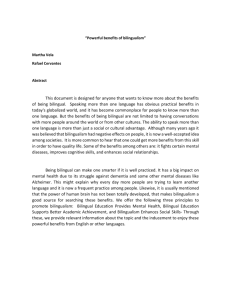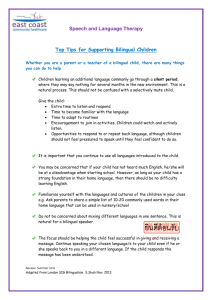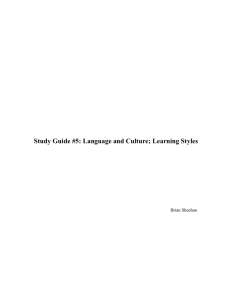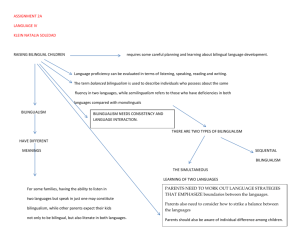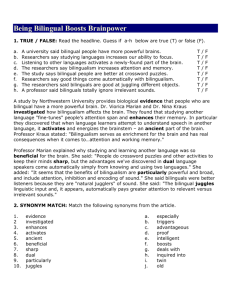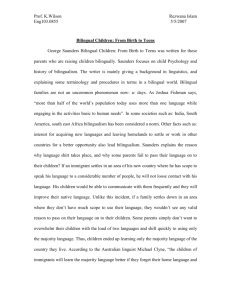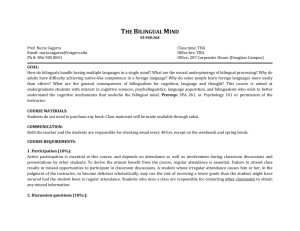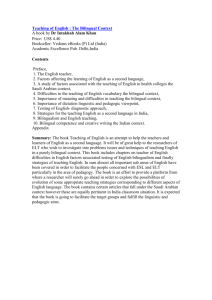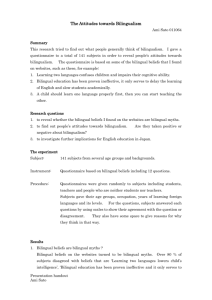BILINGUALISM MATTERS - University of Edinburgh
advertisement
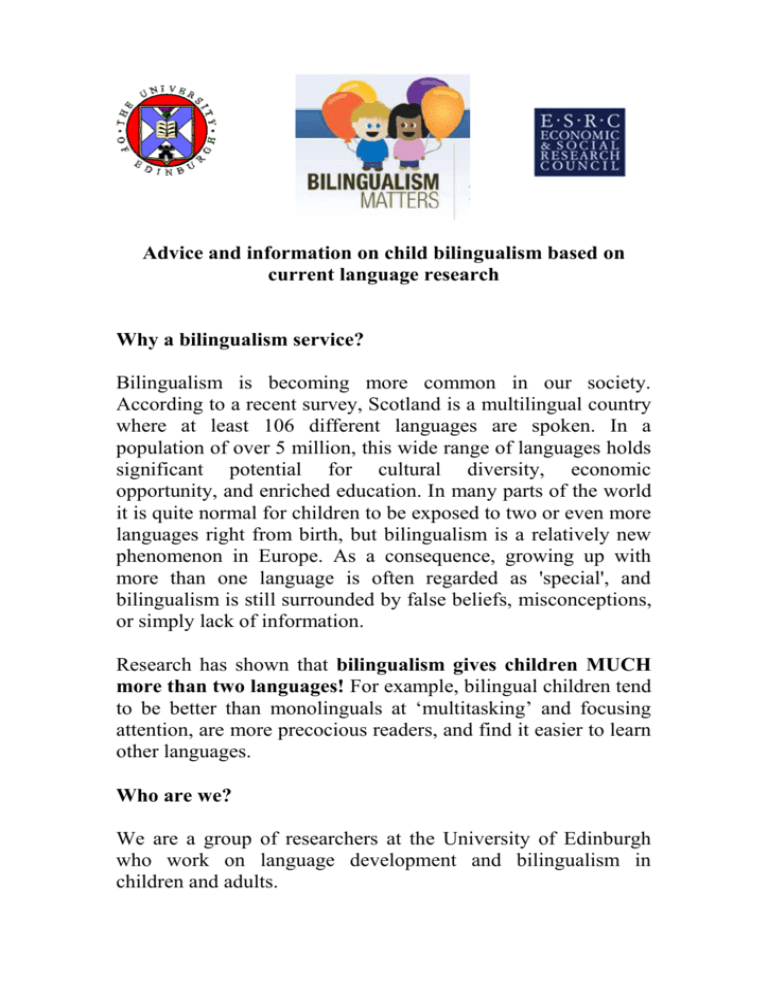
Advice and information on child bilingualism based on current language research Why a bilingualism service? Bilingualism is becoming more common in our society. According to a recent survey, Scotland is a multilingual country where at least 106 different languages are spoken. In a population of over 5 million, this wide range of languages holds significant potential for cultural diversity, economic opportunity, and enriched education. In many parts of the world it is quite normal for children to be exposed to two or even more languages right from birth, but bilingualism is a relatively new phenomenon in Europe. As a consequence, growing up with more than one language is often regarded as 'special', and bilingualism is still surrounded by false beliefs, misconceptions, or simply lack of information. Research has shown that bilingualism gives children MUCH more than two languages! For example, bilingual children tend to be better than monolinguals at ‘multitasking’ and focusing attention, are more precocious readers, and find it easier to learn other languages. Who are we? We are a group of researchers at the University of Edinburgh who work on language development and bilingualism in children and adults. What can we do? We want to bridge the gap between researchers and the community (bilingual families, educators, and policy makers) in order to enable more and more children to benefit from bilingualism. Our primary aim is to disseminate information about bilingualism among bilingual families, teachers, and educators. In the longer-term, we would like to: Raise awareness among bilingual families, educators and policy makers of the facts and advantages of bilingualism. Contribute to the establishment of communication channels and resources for the encouragement of bilingualism in Scotland, the UK, and more generally in Europe. Contribute to shaping public language strategies in Scotland, in the UK and in Europe to include specific policies for promoting bilingualism from early childhood. Identify knowledge gaps where dissemination of research on bilingualism is especially needed. What do we provide? • Advice for families Do you want to know more about how the mind of a bilingual child works? Do you have a bilingual household and do you want to raise your child bilingual but you are not sure how to do this? Do you worry that you child is not saying much in either language? Do you worry about how bilingualism might affect your child’s school achievement? Are you concerned that your child has stopped speaking your language and wants to use only the other language? We offer free advice on these and other typical questions that are raised in bilingual families. Information on these topics is provided on the website and through an email service. We advise only on typical bilingual language development: we are not qualified to deal with medical or psychological conditions of any kind. • Talks to teachers, educators, and community groups We go to interested schools, nurseries, and community centres and give accessible and informative talks about bilingualism. • Consultancies We offer seminars and workshops on bilingualism to businesses and international organisations. We wish to engage with policy makers in an advisory role and contribute to reports and consultations concerned with the promotion of bilingualism and multilingualism in the Scottish society. • Contact Website: http://www.bilngualism-matters.org.uk/ Email: info@bilingualism-matters.org.uk
